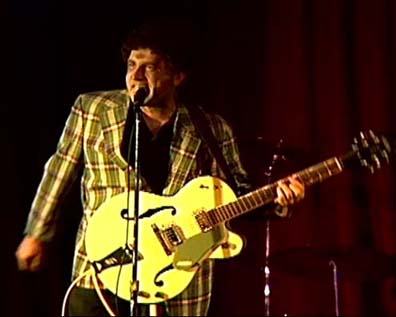Carl Wilson - The Beach Boys
Real Name: Carl Dean Wilson
Born: December 21, 1946
Carl Wilson was an American guitarist and ‘rock and roll’ singer born on December 21, 1946 in Hawthorne, California. He is best known as lead guitarist and co-founder of ‘The Beach Boys’.

Carl Wilson formed the rock and roll band ‘The Beach Boys’ with his elder brothers Dennis Wilson, Brian Wilson, their cousin Mike Love and friend Al Jardine. The band’s lead vocals for the first three years included “Summertime Blues”, “Pom Pom Play Girl”, “Louie, Louie”, “All Dressed Up for School” and “Girl Don’t Tell Me” as Carl Wilson was in his teens and was still developing as a musician and singer. In the vocal sessions of ‘Beach Boys’, Carl recorded guitar leads by directly plugging in his guitar to soundboard unlike other bands.
Carl Wilson became professional vocalist and successful live performer by the mid-1960s and performed as lead vocalist in many albums and singles, which include “God Only Knows” in 1966, “Smiley Smile” and “Wild Honey” in 1967, singles include: “Good Vibrations”, “Wild Honey”, “Darlin’” and “I Can Hear Music”. He became the de facto leader of the band onstage after his elder brother retired from ‘Beach Boys’ and soon became the band’s in-studio leader. Carl produced several albums, which includes “20/20”, “Surf’s Up”, “Sunflower”, “Carl and the Passions – ‘So Tough’” and “Holland”.
In 1974, Carl Wilson wrote a song with Brian Wilson ‘Good Timin’, which reached the chart album and was a Top 40 American hit. Wilson produced records for several artists in 1970s and also appeared as a backing vocalist on other records. The band ‘Beach Boys’ got split in the early 1980s.
Carl Wilson released a solo album “Carl Wilson” in 1981 and toured to promote the album. Carl recorded his second album ‘Youngblood’ and by the time of its release he had rejoined with the ‘Beach Boys’ in 1983.
Carl Wilson was a smoker and he was diagnosed with brain and lung cancer in the early 1997. He died on February 6, 1998.
Some of his albums include:
- The Beach Boys
- List of Beach Boys songs by singer - Carl Wilson
- List of songs by Carl Wilson
- Beach Boys Historic Landmark
- Carl Wilson
- Youngblood




